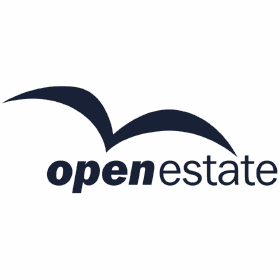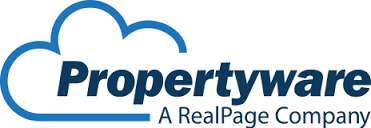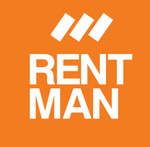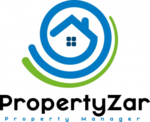Description

OpenEstate

Propertyware
Comprehensive Overview: OpenEstate vs Propertyware
OpenEstate
a) Primary Functions and Target Markets
- Primary Functions: OpenEstate is an open-source software platform designed for managing real estate listings and property data. Its core functionalities include property listing management, support for multiple languages, XML import/export capabilities, and a web-based interface for showcasing properties.
- Target Markets: Being open-source, OpenEstate primarily targets small to medium-sized real estate agencies, individual realtors, and property managers who are looking for customizable and cost-effective solutions. It appeals to users with technical expertise or access to IT resources, as customization and implementation can require technical knowledge.
b) Market Share and User Base
- Market Share and User Base: As an open-source solution, OpenEstate does not typically capture market share in the traditional sense, as its adoption is not centrally controlled or tracked. Its user base tends to be scattered and can vary significantly based on the local community support and contributions. Given its nature, it's popular in niche markets that value open-source flexibility over commercial offerings.
c) Key Differentiating Factors
- Customization: Being open-source, OpenEstate offers high levels of customization, allowing users to modify the code to fit their specific needs.
- Cost-effectiveness: There are no licensing fees associated with its use, which is attractive to businesses looking to minimize costs.
- Community Support: Development and support largely depend on community contributions, which can be a double-edged sword depending on the level of active involvement.
Propertyware
a) Primary Functions and Target Markets
- Primary Functions: Propertyware is a cloud-based property management software that provides services such as tenant and lease tracking, accounting, maintenance management, and marketing solutions.
- Target Markets: It is targeted at property managers and landlords, particularly those managing residential or commercial properties. Its features are designed to support portfolios of varying sizes, from small to large-scale operations.
b) Market Share and User Base
- Market Share and User Base: Propertyware is a well-established player in the property management software market, particularly in North America. It has a significant user base among property managers of residential properties and has been expanding its reach to handle larger portfolios in recent years. While exact market share figures can fluctuate, Propertyware is considered a leading solution among midsize property management firms.
c) Key Differentiating Factors
- Integrated Features: Propertyware offers comprehensive features integrated into a single platform, which streamlines operations for property managers.
- Scalability: The software is designed to grow with businesses, supporting both small property managers and larger operations.
- Customer Support: Offers dedicated support and training resources for users, which is often a key consideration for property managers prioritizing reliable vendor support.
TaskAim
a) Primary Functions and Target Markets
- Primary Functions: TaskAim is a task management and productivity platform that enables businesses to streamline processes and enhance collaboration. It focuses on task assignments, deadline tracking, workflow optimization, and reporting.
- Target Markets: While not exclusively for real estate, TaskAim targets a broad range of industries requiring task management solutions, including real estate agencies, project management teams, and any business sector aiming to improve team productivity and efficiency.
b) Market Share and User Base
- Market Share and User Base: TaskAim has a diverse user base due to its applicability across various sectors. However, compared to dedicated property management systems, its market share in the real estate sector is smaller. TaskAim is more commonly used by businesses that need a general task management tool rather than a specialized real estate solution.
c) Key Differentiating Factors
- Versatility: Unlike the other two, TaskAim's functionalities are not limited to real estate, making it a versatile option for teams across different sectors.
- Ease of Use: Known for a user-friendly interface that simplifies task management, reducing the learning curve for new users.
- Integration Capabilities: Offers broad integration options with other business tools, enhancing workflow efficiency across different platforms.
Overall Comparison
- Specialization: OpenEstate and Propertyware are more specialized in real estate management, with Propertyware offering comprehensive property management features. TaskAim, however, is more of a general task management platform with broader applicability outside real estate.
- Customization vs. Out-of-the-Box Solutions: OpenEstate offers open-source customization, Propertyware provides an integrated out-of-the-box experience with dedicated support, and TaskAim offers flexibility and integrations suitable for wider business use.
- Market Focus: Propertyware serves a more extensive, professionally managed user base, while OpenEstate appeals to tech-savvy users with customization needs, and TaskAim caters to those requiring a versatile task management approach.
Contact Info

Year founded :
Not Available
Not Available
Not Available
Not Available
Not Available

Year founded :
Not Available
Not Available
Not Available
United States
Not Available
Feature Similarity Breakdown: OpenEstate, Propertyware
When comparing property management software like OpenEstate, Propertyware, and TaskAim, it’s essential to evaluate their core features, user interfaces, and any unique functionalities that might distinguish them. Here's a breakdown:
a) Core Features in Common
-
Property Management: All three platforms offer essential property management tools, including tenant and lease tracking, maintenance management, and document storage.
-
Accounting Integration: Each provides capabilities for handling financial tasks like invoicing, rent collection, and accounting reports.
-
Tenant Portal: They feature tenant portals where clients can pay rent, submit maintenance requests, and communicate with property managers.
-
Reporting and Analytics: Basic reporting and analytics tools are available to help users evaluate property performance and financial health.
-
Maintenance Management: Tools for logging, tracking, and managing property maintenance requests and work orders.
-
Communication Tools: Options for email notifications and direct messaging between tenants and property staff.
b) User Interface Comparison
-
OpenEstate: Known for its open-source flexibility, the interface might appear less polished but offers robust customization to meet specific needs. It is valued by users seeking a tailored experience with the ability to modify aspects of the interface themselves.
-
Propertyware: This platform is known for a more streamlined and modern interface, focused on ease of use and efficiency. It balances functionality with user-friendly design, making it relatively easy for new users to navigate.
-
TaskAim: Offers an intuitive and clean interface, focusing on task management and efficiency. It often highlights project management-inspired layouts, which appeal to users who value organized task tracking.
c) Unique Features
-
OpenEstate:
- Open Source Flexibility: The main distinguishing factor, allowing businesses with tech expertise to customize the system extensively.
- Community-Driven Enhancements: Benefits from a community that contributes to its development, offering various plug-ins and extensions.
-
Propertyware:
- Advanced Marketing Tools: Offers marketing features such as listing syndication and vacancy postings to attract tenants.
- Integrated CRM: Built-in capabilities for customer relationship management, useful for maintaining tenant relationships.
-
TaskAim:
- Task-Oriented Design: Emphasis on task management, making it distinctive for property managers who prefer structured task flows.
- Project Management Features: Integrates project management tools that are beneficial for large-scale property management tasks involving multiple stakeholders.
In summary, while OpenEstate, Propertyware, and TaskAim share several core functionalities essential for property management, they distinguish themselves through their interfaces and unique features. The choice among them would largely depend on the specific needs of a property management business, such as the level of customization required, ease of use, or specific tools for marketing and task management.
Features

Not Available

Not Available
Best Fit Use Cases: OpenEstate, Propertyware
When considering property management software solutions like OpenEstate, Propertyware, and TaskAim, it's crucial to understand their unique strengths and how they cater to different business needs. Here's a breakdown of their best fit use cases:
a) OpenEstate
Best Fit Use Cases:
-
Small to Medium Real Estate Agencies: OpenEstate is an open-source real estate tool that is ideal for small to medium-sized agencies looking for a budget-friendly solution with customization capabilities.
-
Businesses Seeking Custom Solutions: Its open-source nature makes it suitable for companies that require extensive customization and have the technical expertise to modify the software to fit specific business processes.
-
International Operations: OpenEstate supports multiple languages and currencies, making it a good choice for agencies that operate internationally or in multilingual regions.
-
Focus on Listing Management: Companies primarily interested in managing real estate listings online will benefit from OpenEstate's strong listing management features.
b) Propertyware
Preferred Scenarios:
-
Single-Family Rental Property Managers: Propertyware is tailored for residential property management, particularly focusing on single-family homes. It excels in this sector with features that address specific needs like tenant screening, maintenance, and accounting.
-
Scalability Concerns: Medium to large property management firms or those planning to scale will find Propertyware advantageous due to its comprehensive set of features and flexible pricing models tailored for larger operations.
-
Companies Needing a Cloud-Based Solution: Propertyware is cloud-based, which makes it ideal for organizations that require remote access to their property management systems and want to eliminate server maintenance.
-
Financial Reporting Needs: It offers robust accounting features crucial for businesses that need detailed financial tracking and reporting.
c) TaskAim
When to Consider TaskAim:
-
Project Management Focus: TaskAim is more of a project management tool rather than specific to real estate or property management. It's best for teams that need robust task management, collaboration, and project tracking capabilities.
-
Cross-industry Applicability: Businesses outside of real estate that require a structured approach to task management, from marketing teams to IT departments, may find TaskAim more applicable.
-
Agile Work Environments: Companies that operate in agile environments and require tools that support quick adaptations and iterative processes might prefer TaskAim.
-
Team Collaboration: It is suitable for companies looking to improve team dynamics and communication through a centralized platform where tasks, deadlines, and collaboration can be easily managed.
d) Industry Verticals and Company Sizes
-
OpenEstate: Best for small to medium-sized real estate agencies, especially those that work internationally or need a customizable solution.
-
Propertyware: Primarily targets the residential real estate sector, serving medium to large property management companies. It supports verticals that emphasize leasing, tenant management, and maintenance services.
-
TaskAim: Versatile across various industries, it is well-suited for businesses of all sizes that require detailed project management and collaboration tools. Its use extends beyond real estate to any sector requiring efficient task administration.
Each of these tools caters to different needs and scales differently across industries, offering distinct advantages based on the project's focus, industry requirements, and company size.
Pricing

Pricing Not Available

Pricing Not Available
Metrics History
Metrics History
Comparing undefined across companies
Conclusion & Final Verdict: OpenEstate vs Propertyware
Concluding which product offers the best overall value among OpenEstate, Propertyware, and TaskAim involves analyzing their features, customer support, pricing, scalability, integration capabilities, and user feedback. Here is a detailed breakdown and final recommendation:
a) Best Overall Value
TaskAim seems to stand out in terms of overall value. It strikes a strong balance between affordability, feature richness, and user-friendly design. While it may not cater to the most extensive properties like Propertyware or have the open-source appeal of OpenEstate, it provides a comprehensive, easy-to-use solution for a wide range of property management needs.
b) Pros and Cons
OpenEstate
Pros:
- Open Source: This allows for high customization and adaptability according to specific needs.
- Cost-Effective: Being open-source can drastically reduce software costs if you have the technical skills.
- Community Support: Active open-source community which can be helpful if you encounter issues.
Cons:
- Technical Expertise Required: Users may need a certain level of technical skill to customize and optimize.
- Limited Features: May lack some of the advanced features offered by proprietary software.
- Scalability Concerns: Might not be the best option for managing very large property portfolios.
Propertyware
Pros:
- Robust Feature Set: Offers a comprehensive array of features tailored for residential property management.
- Scalable: Highly scalable, catering well to larger property portfolios.
- Industry-Specific Insights: Designed with a focus on property management, offering industry-specific tools and analytics.
Cons:
- Higher Cost: More expensive compared to other solutions.
- Complexity: The feature-rich nature may overwhelm some users, particularly smaller businesses.
- Limited Customization: Being a proprietary software, customization options might be limited compared to OpenEstate.
TaskAim
Pros:
- User-Friendly: Easy to use interface that requires minimal training.
- Affordable: Generally more affordable compared to Propertyware.
- Good Customer Support: Responsive support can ease the implementation process.
Cons:
- Mid-Sized Focus: Might lack features for extremely large enterprises.
- Integration Limitations: Might not integrate as smoothly with some third-party applications compared to other options.
- Moderate Customization: Offers lower customization compared to open-source options like OpenEstate.
c) Specific Recommendations
-
For Small to Medium Enterprises (SMEs): TaskAim provides a very balanced solution with a friendly interface and good customer support, making it ideal for small to medium-sized property management companies that need an affordable yet functional solution.
-
For Large Enterprises: Propertyware is likely the better option due to its extensive feature set and scalability, which are crucial for managing large property portfolios.
-
For Technically Proficient Users or Those with Niche Needs: OpenEstate is a strong choice if your company has the technical resources to customize and manage the software, providing flexibility unmatched by its competitors.
Each company must consider its unique needs, technical capabilities, and budget constraints when making a decision. Demonstrations and trial periods can offer a hands-on perspective before committing to long-term use.
Add to compare
Add similar companies



